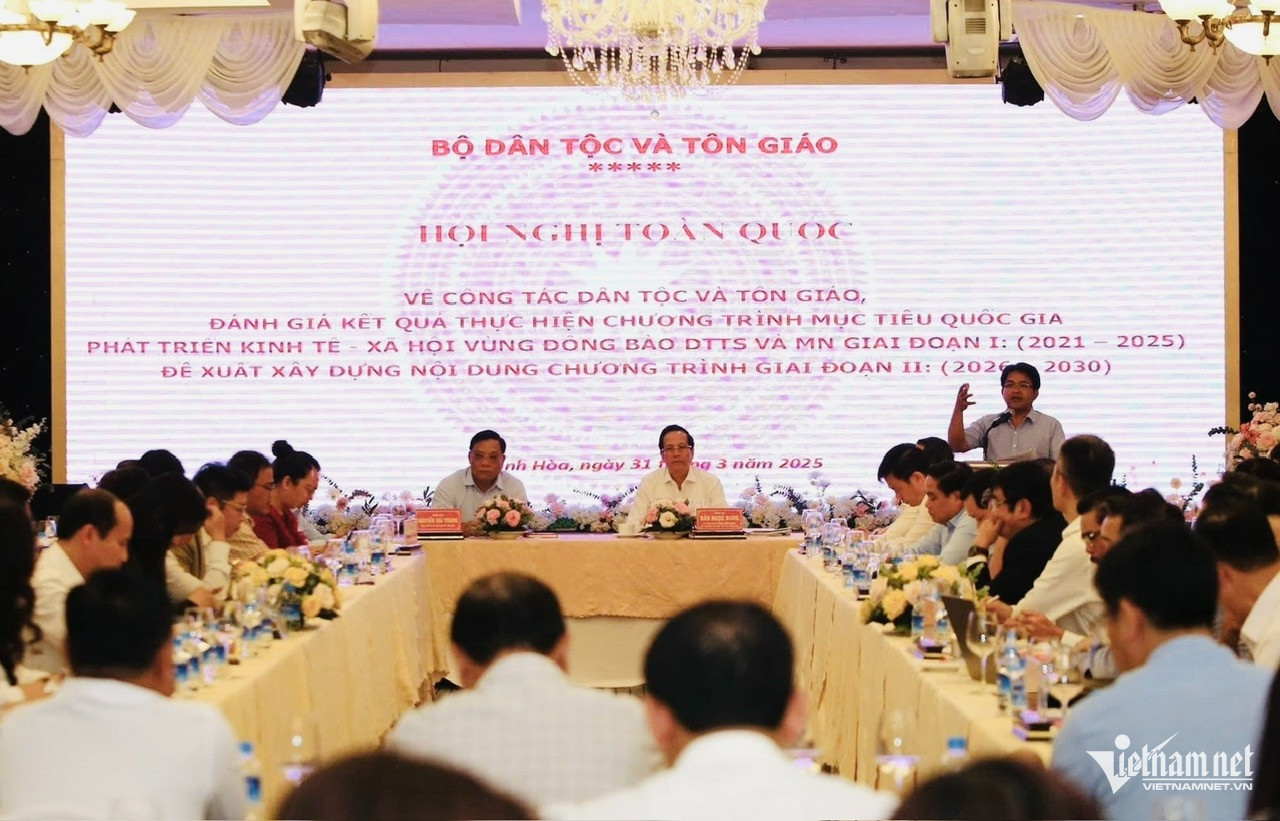The Ministry of Ethnic and Religious Affairs has emphasized the need to proactively confront and reject wrongful acts and distortions involving belief and religion.
Some individuals have been using social media to spread misinformation, attempting to incite religious dignitaries and extremists to oppose the Party and State.
Belief and religious practices remain largely stable nationwide

At a national conference on ethnic and religious affairs held in Khanh Hoa on March 31, Nguyen Cao Thinh, Chief of Office at the Ministry of Ethnic and Religious Affairs, reported that in the first quarter of the year, the overall religious landscape across Vietnam remained stable.
Legitimate religious organizations continued to operate within the boundaries of their charters and legal frameworks, adhering to the principle of closely aligning with the nation's interests.
Numerous major religious events were organized in accordance with the law, attracting large numbers of believers and the public. Many organizations are also preparing to hold their annual conferences in compliance with canon law and state regulations.
Relations between government authorities and religious organizations have become increasingly open and cooperative.
Several spiritual festivals have recently been recognized as national intangible cultural heritage - such as the Co Loa Festival in Hanoi and the Dong Cuong Temple Festival in Yen Bai - contributing to the vibrancy of Vietnam’s belief-based traditions.
Many indigenous belief festivals connected to agricultural practices - such as the Long Tong Festival of the Tay people, the Lung Tung Festival of the Thai ethnic group, and various forest-opening rituals - have enriched spiritual life in ethnic minority communities and helped preserve cultural values.
Overall, belief-based activities have remained stable, lawful, and compliant with regulations on security, public order, sanitation, and fire prevention. No major or complex issues have been recorded.
However, in some places, compliance with civilized practices among visitors and locals remains limited. Common issues include street vending, commercialized ritual services, excessive burning of votive paper, and superstitious practices aimed at profit.
Some belief institutions lack transparency in managing donations and service revenues, resulting in insufficient funds for preservation and restoration efforts.
More concerning is the continued presence of individuals who exploit social media to spread distorted information. These efforts aim to recruit or incite extremist religious figures, both domestically and abroad, to act against the Party and the State.
Preventing religious 'hotspots' from emerging
In the coming period, the Ministry will strengthen its monitoring efforts and coordinate more closely with functional agencies and local authorities to ensure political security and social order - particularly in ethnic minority and religious regions. The goal is to prevent the emergence of any "hotspots" or complex situations.
Authorities will also promptly address or escalate any difficulties encountered in implementing ethnic and religious policies at the local level, thereby fostering unity and reinforcing the great national solidarity bloc.
The Ministry will continue to work with central and local agencies to monitor public sentiment and issues related to belief and religion. It also plans to proactively develop arguments to counter and refute wrongful and misleading acts involving religious activities.
Additionally, efforts will intensify to disseminate the Party’s viewpoints and the State’s policies and laws on belief and religion - particularly the Law on Belief and Religion, Decree No. 95 detailing its implementation, and other related regulations.
The aim is to raise awareness and legal compliance among officials, civil servants, religious dignitaries, followers, and the general public.
Campaigns will continue to encourage religious communities to uphold the law, avoid superstitious or exploitative practices, and eliminate inappropriate customs such as widespread burning of votive paper in prohibited areas, which can lead to waste and fire risks.
The Ministry also intends to maintain regular contact with respected religious figures and dignitaries to promote consensus and cooperation in implementing policies and guiding followers to abide by the law.
Looking ahead, the Ministry of Ethnic and Religious Affairs will closely coordinate and support the Vietnam Buddhist Sangha in hosting the United Nations Day of Vesak 2025 in Ho Chi Minh City.
Binh Minh